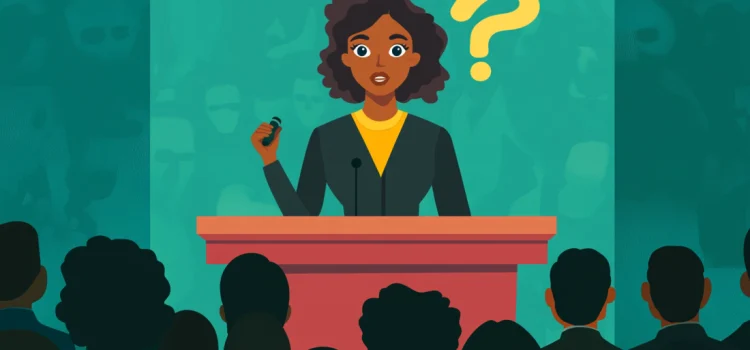

This article is an excerpt from the Shortform book guide to "Doesn't Hurt to Ask" by Trey Gowdy. Shortform has the world's best summaries and analyses of books you should be reading.
Like this article? Sign up for a free trial here.
Why is asking questions important in a debate? What types of questions should you ask?
According to Trey Gowdy, the most effective tool of persuasion isn’t any particular way of making an argument but asking questions. Gowdy claims that as a prosecutor and chair of Congressional committees, he spent more time asking questions than constructing a narrative from those answers.
Here’s how to ask questions in a debate so you can have the upper hand.
The Right Way to Ask Questions
Knowing how to ask questions serves three main functions: It endears you to your opponent or audience by showing that you’re an active and engaged listener; it allows you to learn about your opponent’s beliefs, evidence, and reasoning; and it allows you to guide the flow of the conversation without appearing to do so—by asking leading questions rather than making declarative statements.
(Shortform note: Gowdy’s emphasis on asking questions makes sense given his background—while lawyers are given the opportunity to make speeches in US courtrooms, namely during their opening and closing arguments, much of their time is spent questioning witnesses and posing rhetorical questions to the jury. Similarly, Congressional investigative committees like the one Gowdy chaired spend most of their time conducting interviews and collecting testimony before finally releasing a report of their findings to the public. Because both settings require the final outcome to be based solely on evidence introduced in the course of the investigation, asking questions is the only way to build a compelling case.)
According to Gowdy, there are three types of questions: leading, non-leading, and “why” questions. Leading questions can be used to direct the conversation, while non-leading and “why” questions can be used for information gathering. All three types can be used to demonstrate the speaker’s willingness to listen and consider alternative points of view. Gowdy argues that most people prefer to talk rather than to listen, and so listening to your opponent’s perspective—even if you ultimately disagree with it—makes them feel respected and treated fairly. Eliciting such positive feelings brings you and your opponent closer together and makes cooperation between you more viable.
(Shortform note: Dale Carnegie’s How to Win Friends and Influence People, one of the best-selling self-help books of all time, famously argued that the key to connecting with people is simply to listen to them. Like Gowdy, Carnegie believed that treating people with respect and genuinely considering their point of view was essential to resolving disagreements peacefully and to your mutual benefit. While he doesn’t distinguish between types of questions as Gowdy does, he advises asking questions that your opponent will enjoy answering, namely questions about themselves, their interests, and their beliefs.)
Gowdy discusses the advantages and disadvantages of leading versus information-gathering questions, and ultimately advises using both at different points in a debate.
1. Lead With Questions
Leading questions suggest their own answer in the way the question is asked. For example, beginning a question with “Wouldn’t you agree that…” or “Isn’t it true that…” invites the person to adopt your reasoning on an issue rather than to express their own. Even less directly leading questions can subtly push the person toward agreeing with you, with phrasing like “Is there any way you’d consider…” or at least toward subjects that better serve your position, such as “Why don’t we think about…” Gowdy argues that these types of questions, in inviting the other person to speak and suggesting collaboration in their phrasing, are more convincing and less inflammatory than simple “I believe” or “I disagree” statements.
Gowdy says that leading questions also allow you to direct the flow of the conversation and keep things on topic. Even if your opponent introduces subjects or facts you don’t want discussed, you can ignore or steer the conversation away from them with your next question. Gowdy also suggests reframing things they say in a way that’s more favorable to you, for example, with phrases like “Surely you aren’t arguing that…” or “Couldn’t that also mean…” However, he stresses that you should genuinely listen to your opponent’s answers rather than simply waiting for your turn to speak. If your questions appear sincere, your opponent will be more engaged, and you’re more likely to end the conversation positively, if not in agreement.
2. Information Gathering
While Gowdy encourages gathering as much information as possible about the topic and your opponent before attempting to persuade them, asking questions can be a useful tool of information gathering in the moment. Non-leading questions seek basic facts and information—what happened, where it happened, who was involved, and so on. Unlike leading questions, they don’t suggest a possible answer in the asking of the question, but Gowdy argues that they can still be used strategically. For example, asking a coroner to provide graphic details of a body’s condition in a murder case can elicit sympathy from the jury, even if the witness doesn’t themselves call for the accused person to be prosecuted.
“Why” questions, on the other hand, give your opponent a chance to articulate what they believe and the reasoning they followed to reach their conclusions. While Gowdy warns that the questioner can lose control of the conversation if they allow their opponent to speak for too long, generally asking questions breaks up the flow of your opponent’s argument and allows you to deconstruct it one claim at a time. You can put them at a disadvantage by asking about holes or weak points in their argument that they would likely have otherwise ignored, and even manipulate their emotional state by asking “soft,” easily answered questions or “hard,” more challenging questions at different times.

———End of Preview———
Like what you just read? Read the rest of the world's best book summary and analysis of Trey Gowdy's "Doesn't Hurt to Ask" at Shortform.
Here's what you'll find in our full Doesn't Hurt to Ask summary:
- Expert advice on how to persuade people from a former prosecutor and district attorney
- What you should aim for when you seek to persuade
- Why asking questions is the most effective tool of persuasion






